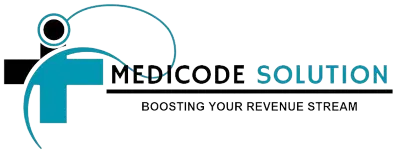Revenue Cycle Management (RCM) plays a pivotal role in the healthcare industry, ensuring seamless financial operations, minimizing errors, and optimizing revenue generation. This comprehensive guide dives deep into the intricacies of RCM services, exploring its importance, components, challenges, benefits, and best practices to help healthcare providers streamline their operations.
What is Revenue Cycle Management (RCM)?
RCM, or Revenue Cycle Management, refers to the financial process used by healthcare facilities to track patient care episodes from registration and appointment scheduling to the final payment of a balance. This process involves several critical steps designed to ensure that healthcare providers are reimbursed for the services they provide, effectively and efficiently.
Core Components of RCM Services
- Patient Registration and Scheduling
The first step in RCM is collecting accurate patient information. This includes personal details, insurance information, and medical history. Proper registration minimizes claim denials caused by incorrect or incomplete data. - Insurance Verification and Eligibility
RCM services verify a patient’s insurance coverage and benefits before services are provided. This ensures clarity on coverage limits, co-pays, and deductibles, preventing payment delays. - Medical Coding and Billing
Accurate coding of diagnoses, treatments, and procedures is essential for generating error-free claims. Common coding standards include ICD-10, CPT, and HCPCS. Medical billing specialists use this information to submit claims to insurers. - Claim Submission
Once claims are prepared, they are submitted to insurance companies for reimbursement. Timely and accurate submission increases the chances of claim acceptance. - Payment Posting
This involves recording payments from insurers and patients. It provides an overview of outstanding balances and revenue. - Denial Management
Claim denials are inevitable, but effective RCM services have strategies to resolve them promptly. Identifying reasons for denials and resubmitting corrected claims is key. - Patient Collections
RCM ensures patients are informed about their financial responsibility, helping to collect payments efficiently while maintaining a positive patient experience. - Reporting and Analytics
RCM systems generate reports on revenue trends, payment cycles, and outstanding balances. These insights enable healthcare providers to make informed decisions for financial improvement.
Importance of RCM in Healthcare- Financial Stability: Efficient RCM processes ensure steady cash flow and revenue optimization.
- Regulatory Compliance: Adhering to coding and billing standards avoids legal complications and fines.
- Enhanced Patient Experience: Transparent billing and effective communication improve patient satisfaction.
Cost Management: Identifying inefficiencies in revenue cycles helps reduce operational costs.
Challenges in RCM ServicesDespite its importance, RCM is not without challenges.
- Complex Insurance Processes: Navigating varying policies and coverage limits can be daunting.
- Regulatory Changes: Frequent updates to healthcare regulations require continuous adaptation.
- Technological Integration: Implementing and maintaining RCM systems involves significant investment.
- Claim Denials: High rates of denials impact cash flow and require extensive follow-up.
- Patient Payment Challenges: Rising out-of-pocket costs lead to payment delays or defaults.
Benefits of Outsourcing RCM ServicesMany healthcare providers opt to outsource RCM services to specialized firms. Here’s why:
- Expertise: Professional RCM providers have the experience and knowledge to handle complex processes.
- Cost-Effectiveness: Outsourcing reduces the need for in-house staff and infrastructure.
- Focus on Core Activities: Providers can concentrate on patient care while experts manage financial operations.
- Improved Accuracy: Specialized RCM services minimize errors in billing and claims.
Scalability: Outsourcing allows providers to scale services based on demand.
Technologies Driving RCM ServicesModern RCM relies heavily on advanced technologies:
- Electronic Health Records (EHRs): Integrating RCM with EHRs ensures seamless data flow.
- Artificial Intelligence (AI): AI-powered tools predict claim denials and optimize billing.
- Automation: Automating repetitive tasks like data entry reduces errors and speeds up processes.
- Analytics and Dashboards: Real-time insights into revenue trends aid decision-making.
Telehealth Integration: RCM systems now support billing for telemedicine services.
Best Practices for Optimizing RCM- Regular Staff Training: Keep billing and coding staff updated on the latest regulations.
- Accurate Documentation: Ensure precise and complete documentation for each patient encounter.
- Patient Communication: Educate patients about their financial responsibilities upfront.
- Monitor KPIs: Track key performance indicators like denial rates and collection efficiency.
- Periodic Audits: Regularly review RCM processes to identify and rectify inefficiencies.
ConclusionRevenue Cycle Management (RCM) is the backbone of financial operations in healthcare. It ensures providers receive timely payments while enhancing patient satisfaction and compliance with regulations. Whether through in-house teams or outsourcing, optimizing RCM services is essential for maintaining financial health in today’s complex healthcare environment.
By adopting modern technologies, following best practices, and continuously improving processes, healthcare organizations can overcome RCM challenges and thrive in an increasingly competitive industry.

